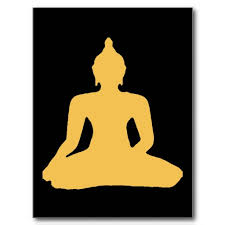 I’m still half asleep, and I should do some yoga and I should meditate and I should put something more than coffee down my throat. But I wanted to share my excitement and anxiety about the steps leading to my October visit with the Dalai Lama. It all starts in a week. I fly to Boston one week from today, then spend five days in New York State at the Mind and Life summer research institute.
I’m still half asleep, and I should do some yoga and I should meditate and I should put something more than coffee down my throat. But I wanted to share my excitement and anxiety about the steps leading to my October visit with the Dalai Lama. It all starts in a week. I fly to Boston one week from today, then spend five days in New York State at the Mind and Life summer research institute.
Click on that link if you haven’t already. “Research institute” is a bit misleading, because those five days are spent doing meditation and stuff (some of which is guided by pros) as well as listening to scientists present their findings. They even have concerts. I went once, about five years ago, and the last evening was spent listening to a singer who was able to sing harmony with himself. I mean literally. He could produce two or three different pitches at the same time, and they worked together. He even had a backup band of six or seven weird-looking dudes, singing and chanting, one of whom played the didgeridoo. Bizarre and beautiful. Much melting and bonding among the 200 or so people in the audience.
 Mind and Life is amazing. They’re the group that organizes the DL’s interactions with scholars, and especially with scientists, and especially especially neuroscientists. They’ve been doing it for more than 20 years. The DL is particularly interested in linking Buddhism, neuroscience, and social problems — which seems like a pretty ambitious project. They get a lot of donations and they do a lot of very good work. Their projects include these special annual meetings with the DL, like the one I’ll attend in October on “Craving, Desire, and Addiction.”
Mind and Life is amazing. They’re the group that organizes the DL’s interactions with scholars, and especially with scientists, and especially especially neuroscientists. They’ve been doing it for more than 20 years. The DL is particularly interested in linking Buddhism, neuroscience, and social problems — which seems like a pretty ambitious project. They get a lot of donations and they do a lot of very good work. Their projects include these special annual meetings with the DL, like the one I’ll attend in October on “Craving, Desire, and Addiction.”
So I applied to this 5-day New York event so I could get my myself a bit more “cosmic” (as my brother and I used to call it in the 70s) in preparation for a meeting in Boston — the “premeeting” for the meeting with the DL in October. I want to be at my best. And that’s the part I’m nervous about. I guess there’ll be a couple of contemplative/Buddhist types there, but the group includes at least three top neuroscientists, two of whom are stars in the addiction field: Nora Volkow and Kent Berridge. I’ve linked to Berridge quite a few times on this blog. I  think his theory rocks, and he seems like a good guy anyway. But Volkow scares me a bit. She’s a very famous person, head of the National Institute on Drug Abuse (NIDA) for quite a few years, and a crusader for the “disease model” of addiction, which I’ve made it my business to refute. This premeeting goes on for 3-4 days, and we’ll each get up and say whatever it is we think we have to say to the DL. So I’ll no doubt talk about why I think addiction isn’t a disease. And then — will she squish me? Like a bug?
think his theory rocks, and he seems like a good guy anyway. But Volkow scares me a bit. She’s a very famous person, head of the National Institute on Drug Abuse (NIDA) for quite a few years, and a crusader for the “disease model” of addiction, which I’ve made it my business to refute. This premeeting goes on for 3-4 days, and we’ll each get up and say whatever it is we think we have to say to the DL. So I’ll no doubt talk about why I think addiction isn’t a disease. And then — will she squish me? Like a bug?
 But it’s not only Nora Volkow. The whole thing makes me nervous as well as excited. These guys are the DL’s Palace Guard, at least in the intellectual world. Everyone’s a pro. So I feel like I should do about two more years of prep — especially reading in neuroscience, and maybe learn something about
But it’s not only Nora Volkow. The whole thing makes me nervous as well as excited. These guys are the DL’s Palace Guard, at least in the intellectual world. Everyone’s a pro. So I feel like I should do about two more years of prep — especially reading in neuroscience, and maybe learn something about  Buddhism — before I’m ready to hold forth. Not only that, but I’m the one presenter (out of 8) who’s, um, supposed to represent the “experience” or “phenomenology” of addiction as well as some thoughts about what’s behind it. Translate: I’m the druggie in the bunch. Not sure how to roll with that one.
Buddhism — before I’m ready to hold forth. Not only that, but I’m the one presenter (out of 8) who’s, um, supposed to represent the “experience” or “phenomenology” of addiction as well as some thoughts about what’s behind it. Translate: I’m the druggie in the bunch. Not sure how to roll with that one.
Anyway, I’ll be back home July 4th. I’m planning a road trip with my daughter between the two meetings. But I’ll try to keep you posted while these events are unfolding. They are the steps to my meeting with you-know-who, and it’s all still like a dream.

Leave a Reply